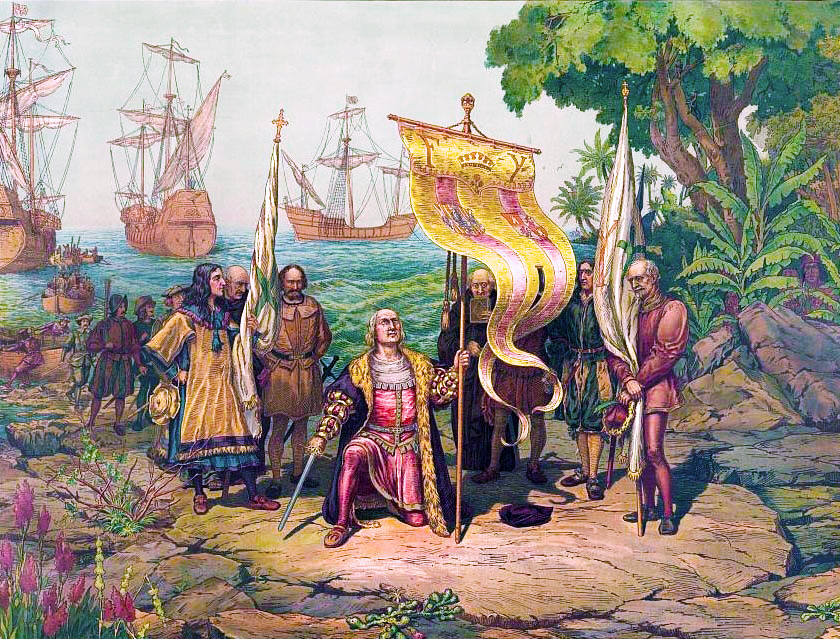Most of us learned the basic life story of Christopher Columbus in school, although as has been reported, the National Education Association wishes to rewrite history and how it is taught in our schools today. Even when the story of Columbus has been told, a fact that is often overlooked is that Columbus believed his discovery of the New World was necessary in order to fulfill an ancient prophecy.
Columbus, who was a member of the Third Order of Penance, founded by St. Francis of Assisi, was a deeply religious man. When he went before the Vatican and the Spanish monarchy, the central focus of his request for exploration funding was a millennial prophecy about the destiny of the lands he would discover. The prophecy foresaw a ‘New World’ arising in the West which would fight a final crusade against the powers of the Middle East.
In spite of the title, the Book of Prophecies is not a series of predictions made by Christopher Columbus, but rather a compilation of passages he selected from the Bible which he believed were pertinent to his mission of discovery. Columbus’ religious beliefs certainly influenced his interpretation of life and history; it also inspired his vision and purpose in life. His own writings prove that he believed that God revealed His plan for the world in the Bible and that he (Columbus) was obeying the mission God staked out for his life when he set sail west across the Atlantic Ocean.
Columbus’ prophesies and revelations were written towards the end of his life, probably with the assistance of his friend, the Carthusian monk Gaspar Gorricio. Most of the prophecies of Isaiah from which Columbus quotes, refer to the restoration of Jerusalem and its future glory. He most likely wrote the book between September 1501 and March 1502, with further additions made until 1505. The journal conveys a medieval notion that in order for the end of the world, or the second coming of Jesus Christ to occur, a number of events must occur. First there was the strong belief that Christianity must be spread throughout the world, a creed which Columbus strictly promoted during his encounters with native peoples.
Columbus has often been criticized in recent years for the forced conversion of the native population in the lands he discovered. Generally, the arguments have been based upon actions that are taken out of their historical context. In the era of Columbus, many theologians believed the discovery of the Garden of Eden, thought to be on the top of a crag or mountain, was a prerequisite for the second coming of the Lord. When Columbus arrived in Venezuela in 1498, he may certainly have thought that the green peaks of that country were home to the garden described in the Old Testament.
Fulfillment of the millennial prophecy also called for a last crusade. This was to be led by a final world emperor, who would take back the Holy Land. Because of their vast power and religious convictions, Columbus may have viewed the Spanish monarchs, Ferdinand and Isabella, as suitable for this role.
The central theme for all of the prophecies and scriptures quoted by Columbus reflect the spirit of the crusades. This was not in the sense of a physical victory in the Holy Land, but of a spiritual victory and the spreading of Christianity. As early as 1493, Columbus wrote a letter to the Royal Treasurer of Spain in which he speaks of the discovery of the New World as a great victory. He noted however, that it was not a victory by force of arms, but one of bringing the truth to people who were sitting in the darkness of unbelief.
The current historical revisionists ignore these religious beliefs of Columbus and have made no attempt to understand how deeply his faith affected all of his decisions. It is far easier to criticize the choices that he made when Columbus is portrayed as an imperialist who sought to line his ships’ coffers with gold. It is far more insightful to view his decisions within the context of European Christianity at the end of the 15th century. Columbus viewed himself as a servant of the Lord who was chosen by God to fulfill His purpose, as Isaiah had prophesied (Isaiah 46:11). There is no doubt his voyages forever changed the lives of the native people of the new worlds he explored and as history has shown, he never did see the whole of his visions realized.





